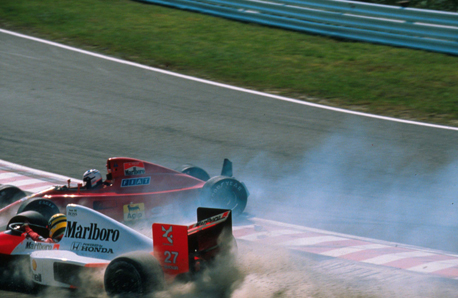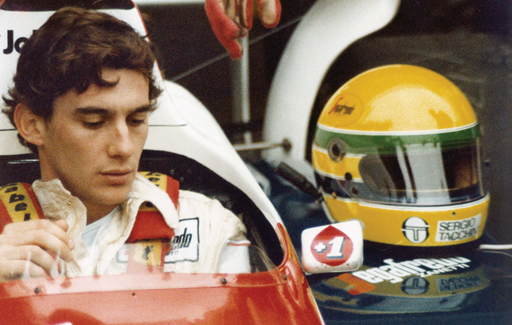
Senna: the Top Gear review
The year after his death, Spanish actor Antonio Banderas was set to play Ayrton Senna in a $100m Hollywood bio-pic. Of course, it never happened, and now it never will. With the release of Senna, a feature-length documentary about arguably the greatest and certainly the most charismatic racing driver of all time, the real story has been told. Definitively, thrillingly and with real emotion.
Big movies usually follow a three-act narrative arc and Senna's life lends itself naturally to that. It opens with never-before-seen footage of him karting in Brazil, and reaches a mesmerising and moving climax with the dreadful events at Imola in May 1994. In between, Senna's racing career unfolds in a way that even the most optimistic Hollywood screenwriter would scarcely have dared imagine. It's all here: the first glimmers of genius, the ascent to greatness, the period of domination, the bitter rivalries and intense politicking, disillusion and dismay, flawed heroism, the final grim chapter.
Other factors contribute to this being not just a great motor racing film or a great sports film, but a great piece of cinema full-stop. It helps that Senna himself has the looks and screen presence of a movie idol. His gaze is intense, his focus all-consuming, and the camera simply loves him. Then there is the footage the film uses to construct this most compelling of dramas. Senna's rise mirrored a period when emerging technology meant that many of his fans, especially in Japan where he really was revered like a deity, had their own cameras. Formula One is obviously also a sport that is well-covered, and the upshot is that the film-makers had almost 5000 hours of footage to sift through. As you'd expect, the in-car stuff is sensational, and the sight of Senna qualifying at Monaco in 1988 - when he was close to two seconds faster than his team-mate Alain Prost and admitted that he'd achieved some kind of transcendental state - is as spookily powerful as ever.
But some of the other material is equally special. Brazilian broadcaster Globo tracked Senna closely even before he made it into F1 in 1984, and his appearance on a 1980s Christmas programme is hilarious. Better still are the scenes culled from FOM's (Formula One Management) bulging archives, particularly the driver's briefing in which Senna remonstrates at former FIA President, the pompous Jean-Marie Balestre. There are precious insights not to just into Senna's world, but the secretive world of F1 itself.
The truth is that even a rough edit of all this would probably have satisfied most racing fans. But what elevates Senna to a different level is that it's an expertly constructed film. Credit for this must go to the director, the Bafta award-winner Asif Kapadia, producer James Gay-Rees, and writer/producer Manish Pandey. The latter's screenplay gives the film a genuinely cinematic thrust, and has you marvelling at Senna's sheer ability, the spiritual dimension he brought to his racing, and his infectious and often infuriating personality. Kapadia, meanwhile, brings his skills as a drama director to bear on what is often very grainy looking archive, and invests the film with a relentless, intoxicating rhythm. There are no talking heads in Senna, just some well-judged voice-over from journalists who were there, as well as key figures like Ron Dennis and Frank Williams. The film is essentially a patch-work quilt of found footage, but an extraordinarily elegant one.
Top Gear
Newsletter
Thank you for subscribing to our newsletter. Look out for your regular round-up of news, reviews and offers in your inbox.
Get all the latest news, reviews and exclusives, direct to your inbox.
Trending this week
- Car Review
BMW iX3









